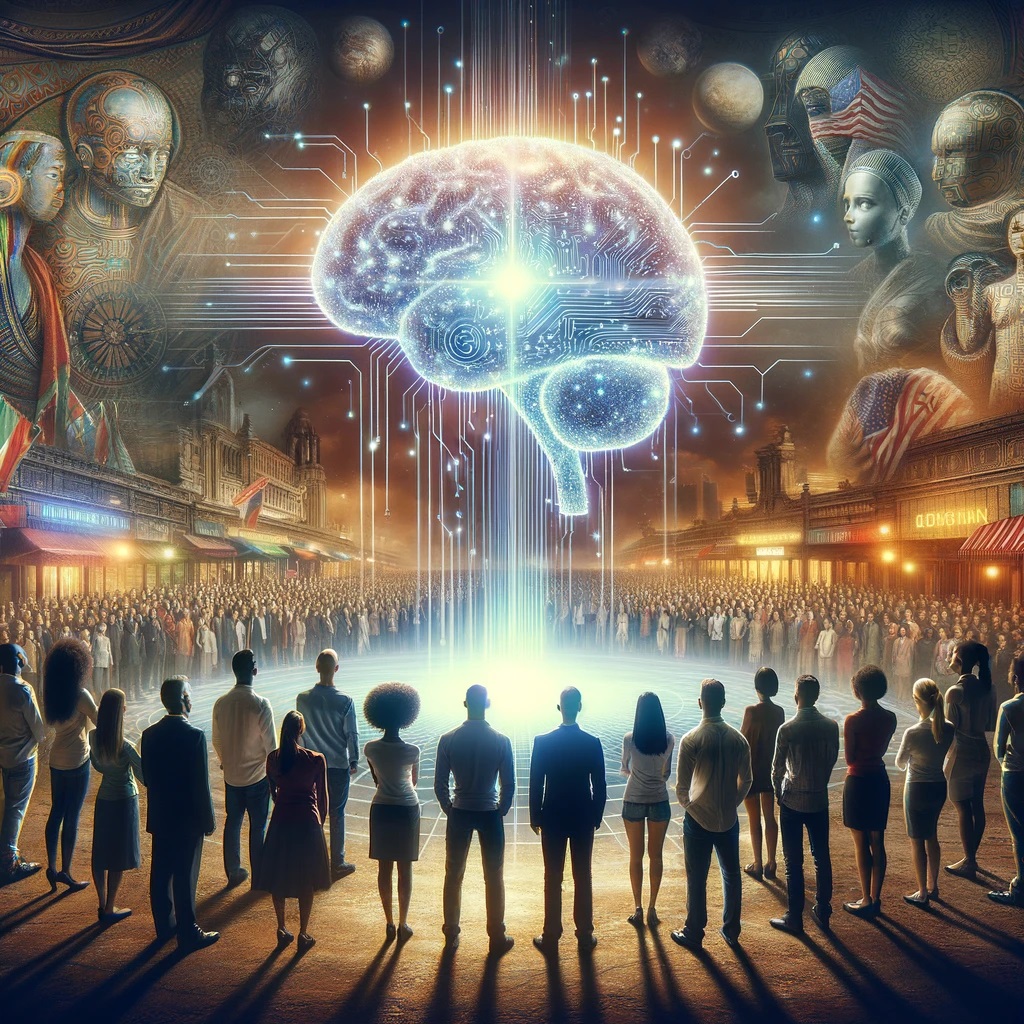Harmonizing Diversity And Accuracy: The Path Forward For Ethical A

In the rapidly evolving landscape of artificial intelligence (AI), Google's recent pause on its AI model, Gemini, for generating images of people has ignited a crucial debate on the importance of balancing diversity and accuracy in AI-generated content. This incident underscores the broader challenge faced by tech giants: how to ensure their AI models not only embrace a wide range of identities but also accurately represent historical and cultural contexts.
The Importance of Diversity in AI
Diversity in AI is paramount. It ensures that the technology reflects the rich tapestry of human experiences, catering to a global audience. When AI models accurately include a diverse range of identities, they foster inclusivity and provide all users with representations that resonate with their own experiences. However, achieving this diversity while maintaining historical and cultural accuracy presents a unique set of challenges.
Challenges of Ensuring Accurate Historical Depictions
The backlash against Google's Gemini model, which resulted from its overcorrection in depicting women and people of color in contexts where they historically might not have been present, like Viking kings or German soldiers during World War II, highlights the intricate balance required in AI development. These challenges are not merely technical but deeply ethical, demanding a nuanced understanding of history and culture.
The Fine Line Between Correction and Overcorrection
Google's commitment to pausing and improving Gemini's image generation capability reflects a responsible approach to addressing these challenges. The incident illustrates the difficulty in fine-tuning AI: striving for diversity and inclusivity without veering into historical inaccuracy requires meticulous calibration and a deep understanding of the past.
Implications of AI Inaccuracy and Bias
The consequences of inaccuracies and biases in AI are far-reaching. They can spread misinformation, perpetuate stereotypes, and ultimately erode trust in technology. For instance, if AI models consistently misrepresent historical facts, they could significantly impact educational content, shaping misconceptions that persist among generations. Moreover, biases in AI can reinforce harmful stereotypes, undermining efforts toward social equality.
Ethical Considerations and Human Oversight
Addressing these challenges necessitates robust human oversight. AI models must be developed with a clear ethical framework, one that is informed by diverse perspectives and subject to continuous scrutiny. Transparency in the development process and active engagement from a range of stakeholders are crucial to ensuring AI technologies uphold societal values.
The Effects of AI on Society and Culture
The influence of AI on society and culture cannot be overstated. Models like Gemini not only affect how history is depicted but also shape cultural narratives, influencing how societies perceive themselves and others. The potential for AI to alter educational content, media portrayals, and public discourse underscores the need for careful consideration in its development.
Future Directions for AI Development
Improving the balance between diversity and accuracy in AI calls for interdisciplinary collaboration and innovative training methods. Ongoing research aimed at minimizing AI biases and errors is essential. Initiatives that involve a broad spectrum of voices in the development process can help ensure that AI models serve as tools for inclusivity and accuracy, reflecting the complexity of human history and diversity.
Conclusion
The controversy surrounding Google's Gemini model serves as a reminder of the importance of addressing the challenges posed by AI in historical depiction and diversity. As technology continues to evolve, the need for vigilance, research, and collaboration among tech companies, researchers, and the public remains paramount. Together, we can ensure that AI technologies not only advance in capability but also in ethical responsibility, fostering a more inclusive and accurately represented global community.
Author: Ricardo Goulart
From Chip War To Cloud War: The Next Frontier In Global Tech Competition
The global chip war, characterized by intense competition among nations and corporations for supremacy in semiconductor ... Read more
The High Stakes Of Tech Regulation: Security Risks And Market Dynamics
The influence of tech giants in the global economy continues to grow, raising crucial questions about how to balance sec... Read more
The Tyranny Of Instagram Interiors: Why It's Time To Break Free From Algorithm-Driven Aesthetics
Instagram has become a dominant force in shaping interior design trends, offering a seemingly endless stream of inspirat... Read more
The Data Crunch In AI: Strategies For Sustainability
Exploring solutions to the imminent exhaustion of internet data for AI training.As the artificial intelligence (AI) indu... Read more
Google Abandons Four-Year Effort To Remove Cookies From Chrome Browser
After four years of dedicated effort, Google has decided to abandon its plan to remove third-party cookies from its Chro... Read more
LinkedIn Embraces AI And Gamification To Drive User Engagement And Revenue
In an effort to tackle slowing revenue growth and enhance user engagement, LinkedIn is turning to artificial intelligenc... Read more

